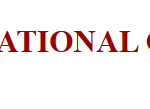The Indira Gandhi National Open University (IGNOU), established by an Act of Parliament in 1985, has continuously striven to build an inclusive knowledge society through inclusive education. It has tried to increase the Gross Enrollment Ratio (GER) by offering high-quality teaching through the Open and Distance Learning (ODL) mode. The University began by offering two academic programmes in 1987, i.e., Diploma in Management and Diploma in Distance Education, with a strength of 4,528 students.
Today, it serves the educational aspirations of over 3 million students in India and other countries through 21 Schools of Studies and a network of 67 regional centres, around 2,667 learner support centres and 29 overseas partner institutions. The University offers about 228 certificate, diploma, degree and doctoral programmes, with a strength of nearly 810 faculty members and 574 academic staff at the headquarters and regional centres and about 33,212 academic counsellors from conventional institutions of higher learning, professional organisations, and industry among others.

